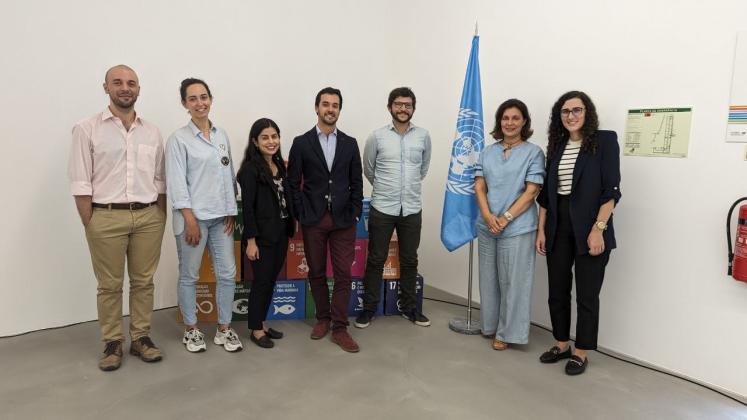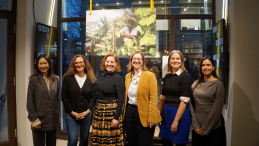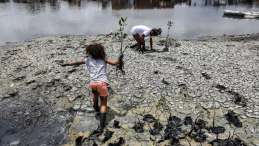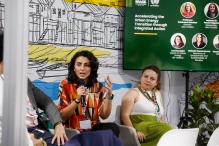The Operating Unit on Policy-Driven Electronic Governance (UNU-EGOV) in Guimarães received a visit from a delegation of Porto City Council’s Data and Strategic Research team to establish a direct line of cooperation.
The delegation from Porto City Council, led by Gonçalo Martins Barbosa (Head of Data and Strategic Research), included Afonso Fonseca (Sustainability Project Manager), João Santos (Business Intelligence Project Manager), and Patrícia Serrão (Project Manager). The meeting focused on ongoing projects related to evidence-based policy and e-governance.
The UNU-EGOV Director, Delfina Soares, accompanied by Bushra Ebadi (Research Associate) and Inês Campos Ruas (Research Assistant), welcomed and hosted the delegation. During the meeting, they provided insights into UNU-EGOV’s four core priority and practice areas: policy research, capacity building, consultancy and advisory services, and network and knowledge mobilization.
Several UNU-EGOV projects were highlighted during the discussion, including Larissa Magalhães’ work on Open Data, Moinul Zaber’s work on data visualization, Lucille Tetley-Brown’s work on municipal data strategies and capacities, and Bushra Ebadi’s work on Sustainable Development Goals (SDG), digital rights, and cities.
The Porto team shared insights into their priorities and ongoing projects. Their primary objective is to provide high-quality information for evidence-based policymaking to municipal executives, decision-makers, local investors, visitors, and community members.
Porto has been developing Sustainable Development reports since 2017 to track the city’s progress on the Sustainable Development Goals (SDG). In 2020, the ‘Porto Futuro’ program (an educational program that partners with schools and companies to develop a more dynamic and competitive society) was launched, marking a pivot to a more future-oriented approach in strategy and planning towards sustainability. In 2021, the team launched the ‘Porto Economy Award’ to recognize locally focused academic work, as well as a data visualization project that collects and presents information from diverse data sources to support municipal decision-makers. Porto’s Economic Development Strategy, ‘Pulsar’, uses a project-based approach to fund initiatives in 8 areas: commerce and services, tourism, real estate, ICT and business centres, culture and creative industries, green economy and renewal energies, blue economy, and health.





